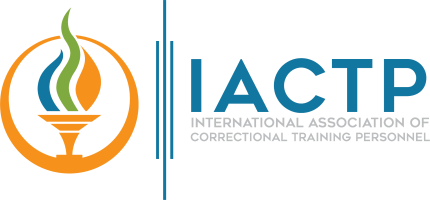These are times of short staffing, mandatory overtime, and canceling training classes because correctional facilities cannot spare officers to attend classes. Not only do our people have to work shorthanded, do more with less and endure the stress of the job, but also train staff. Training is an ongoing process, every day in every facility.
True, training for our corrections officers (COs) and civilians comes in many forms. From the traditional classroom to online webinars, corrections training is offered in many unique settings. The key question is “Do we have our best people developing and presenting this training?”
Let us take a two-level approach concerning correctional training.
Approach 1: Every workday is a training day, and everyone is a trainer.
Training is more than sitting in an academy classroom, or sitting in front of a computer, advancing the mouse to the next module. It is more than signing up for a webinar or watching a podcast. While these methods may be cost effective and expedient, good training can also be informal. It is the veteran CO explaining to a new CO the best way to perform a cell search or a pat-down of an inmate suspected of carrying contraband. It is the records clerk explaining the new records software. It is the courthouse security officer showing the ‘ropes’ to the officer who has just transferred over from the jail. It is the veteran CO who has worked in transportation ‘breaking in’ a new CO. And let us not forget the civilians who may work in the medical areas, the kitchen, maintenance, laundry, programs, administration, and volunteers. They need training both when they are hired and continuing throughout their careers.
This informal training must be conducted by the best people. So, in a general sense, the better corrections staff are professionally, the better they are at conducting training during every workday, on every shift, in every section. Not everyone can be an instructor in the academy or be assigned as field training officers (FTOs). However, training runs throughout the agency-from the upper-level management who write the policies and procedures all the way down to online personnel in the trenches. This means that supervisors from line staff sergeants, corporals, and lieutenants to the head of the kitchen must know the job, are skilled, and have an effective way of interacting with people. Also, they must know how to handle performance problems, take corrective actions, and make supervisors aware of progress with staff members or the lack thereof. Documentation must be accurate in training notes, supervisor files, and performance evaluations.
Approach 2: Professional staff trainers must be ‘top notch’.
Correctional agencies are structured organizations, with a para-military rank structure. Training assignments must be given careful thought. A staff person being assigned to a training position should have:
- Good mentoring skills: These skills include helping the squad, section, etc. with problems. This means that they are dependable and help whenever they can. They help to solve problems and help supervisors. Mentors engage in ‘teachable moments’ with new staff and staff that need help to do the job properly.
- Good communication skills: These skills include oral, written, and non-verbal. They speak clearly, their writing skills from entering information on daily logs, pass-on information, incident reports and training records are excellent. Written documentation is clear, up-to-date and does not require corrections, or re-writes. They get it right-the first time. Nonverbal communications show COs or non-sworn employees who are neat, well-groomed and by their demeanor and actions are attentive to the job at hand.
- Good organizational skills: Good trainers have good organizational skills. They see problems and training needs and think of ways to solve the problems. They use the best resources-from written material to staff. They prioritize these needs. They can write clear and logical presentations for lesson plans, both online and class presentations. Their research skills are exemplary; they also can develop good handouts and scenarios for role play exercises.
- Good presentation skills: We can all think back to our school, college, and academy days about the many teachers we had. We remember both the good and bad-the interesting teachers and the boring ones. Good trainers are good presenters and are self-confident. They use methods that spark interest and learning. They mix up the presentations. News stories, video clips, guest speakers, scenarios, role plays-the list of innovative techniques are endless.
In closing, this is my hope for my training participants. “You walk in here this morning with a set of skills for your on-the-job toolbox. When you walk out of here at the end of the day, I hope that you have added new skills to your toolbox. You learned something that you did not know before or got refreshed on the skills that you did have.”
About The Author
Lt. Gary F. Cornelious Deputy Sheriff, Retired, Fairfax County (VA) Office of the Sheriff and Adjunct Faculty at George Mason University

